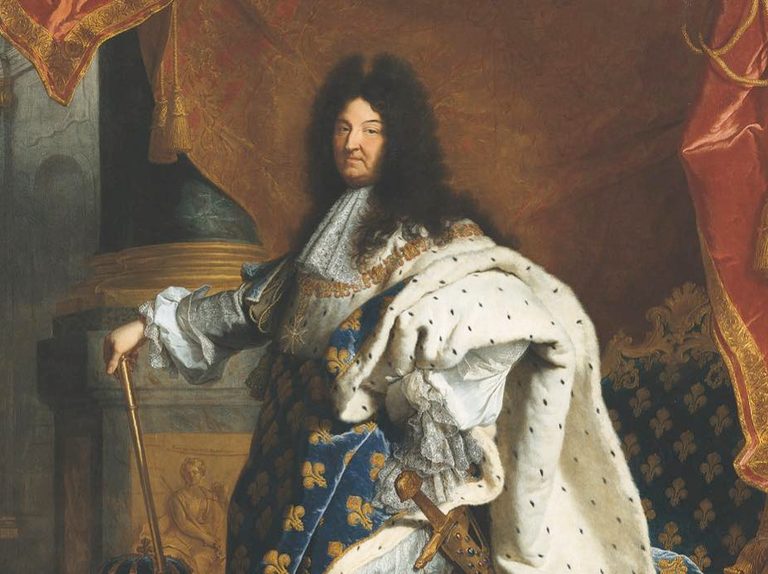king Louis Xiv

In the annals of history, few monarchs command as much attention and fascination as Louis XIV, the illustrious Sun King of France. His reign, spanning over seven decades, left an indelible mark on not only French society but also on the political landscape of Europe. Louis XIV’s legacy is a multifaceted tapestry of absolutism, cultural flourishing, and diplomatic maneuvering, all of which continue to shape our world today.
Born in 1638, Louis ascended to the throne at the tender age of four, following the death of his father, Louis XIII. Despite his youth, the young king would soon demonstrate a formidable grasp of power. Central to his rule was the concept of absolutism, the belief in the divine right of kings to govern unchecked by any other authority. Louis famously declared, “L’État, c’est moi” (“I am the state”), encapsulating his belief in the monarch’s supreme authority.
Under Louis XIV’s reign, France experienced a golden age of cultural and artistic splendor. The king was a great patron of the arts, fostering the talents of luminaries such as Molière, Racine, and Lully. The construction of the magnificent Palace of Versailles stands as a testament to his commitment to grandeur and opulence, serving not only as a residence but also as a symbol of French power and prestige.
However, Louis XIV’s ambitions extended beyond the confines of his kingdom. He pursued an aggressive foreign policy, seeking to expand French influence across Europe. His numerous military campaigns, such as the War of Devolution and the War of the Spanish Succession, aimed to secure territorial gains and assert French dominance on the continent. Although these endeavors brought both triumphs and setbacks, they solidified France’s status as a major player on the European stage.
Yet, for all his accomplishments, Louis XIV‘s reign was not without its challenges and controversies. The imposition of heavy taxes to fund his wars sparked discontent among the French populace, leading to periodic uprisings and unrest. His persecution of religious minorities, particularly the Huguenots, tarnished his reputation as a benevolent ruler committed to religious tolerance.
Moreover, the Sun King’s diplomatic maneuvering often drew the ire of his European counterparts. His relentless pursuit of territorial expansion provoked coalitions of opposing powers, resulting in protracted conflicts and shifting alliances. The balance of power in Europe was fundamentally altered by Louis XIV’s actions, laying the groundwork for the geopolitical struggles that would define subsequent centuries.
Louis XIV’s death in 1715 marked the end of an era, but his legacy endured long after his passing. The principles of absolutism he championed would influence monarchs and rulers for generations to come, shaping the course of governance in Europe and beyond. The cultural achievements of his reign continue to inspire artists and thinkers, reminding us of the enduring power of human creativity.
Conclusion
Louis XIV’s legacy is a complex and multifaceted one, encompassing both triumphs and controversies. As the Sun King, he illuminated the world with his grandeur and ambition, leaving an indelible mark on history that continues to fascinate and captivate us to this day.






